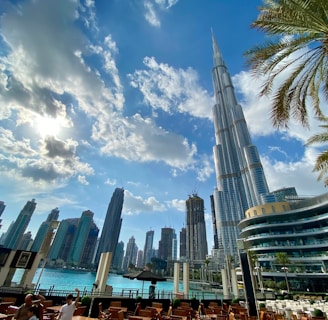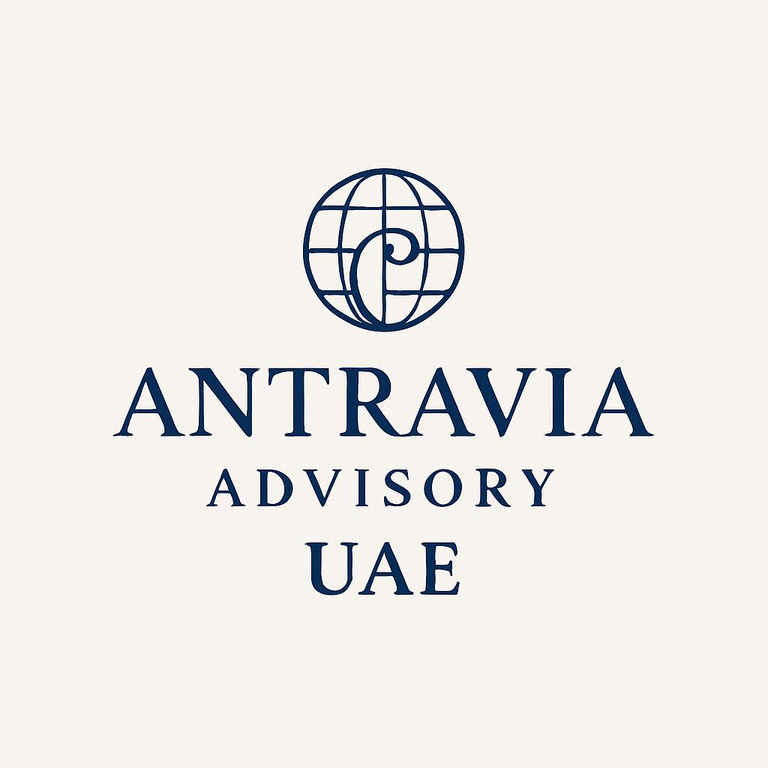How to Get a Travel Agent / Tourism License in Dubai: Complete Guide for 2025
Learn how to obtain a travel agent or tourism license in Dubai. Step-by-step requirements, approvals, costs, and compliance rules explained in detail.
TRAVEL FINANCE AND ACCOUNTING BLOG - U.A.E EDITION
10/19/20256 min read


How to Get a Travel Agent / Tourism License in Dubai: Complete Guide for 2025
Introduction
If you are planning to launch a travel agency, tour operator, or online travel business in Dubai, obtaining the correct licence is essential. The Dubai tourism and economic authorities regulate travel companies closely — not only to protect consumers but to maintain Dubai’s reputation as a world-class destination.
This guide explains the process in full detail: licence types, regulatory approvals, required documents, costs, and renewal obligations. It reflects the latest information available for 2025.
1. Licence Types and when you need them
In Dubai, travel and tourism activities fall under four main categories regulated by the Department of Economy and Tourism (DET). The correct choice depends on the type of services you plan to offer and whether you work with local or international clients.
The first is the Inbound Tour Operator Licence, which allows you to organise tours, excursions, and travel experiences within the UAE. This licence suits destination management companies, hotel-based tour desks, or local providers who serve visitors already in the country.
The second is the Outbound Tour Operator Licence, required for companies that sell international holidays and travel packages abroad. This covers agencies that help UAE residents book overseas trips, flights, and packages through foreign suppliers.
The third is the General Travel Agency or Tourism Licence, which combines both inbound and outbound activities. It allows full travel services, including ticketing, hotel reservations, and visa assistance. Most established agencies that handle multiple markets or act as intermediaries for tour operators choose this licence.
Finally, the Online Travel Agency (OTA) Licence is designed for web-based and digital platforms that sell travel services online. It covers businesses operating primarily through websites or apps, managing bookings and payments electronically rather than through physical offices.
Choosing the correct licence is critical, as it defines the scope of your operations and determines which additional permits, insurance policies, and authority approvals you will need. To operate legally, your business must be licensed under one of these categories. Activities like ticket sales, travel consultancy, or arranging excursions cannot be carried out under a standard commercial licence.
2. The Regulators and Legal Framework
Dubai Department of Economy and Tourism (DET): The main authority responsible for issuing travel and tourism licences.
Civil Aviation Authority (CAA): Oversees airline ticketing agencies and approves air-related services.
Tourism and Travel Companies Regulation No. 6 of 2006: The core regulation outlining obligations for travel businesses, including insurance, manager qualifications, and consumer protection.
Always verify updates directly with DET before applying, as specific approval processes and documentation requirements can change.
3. Step-by-Step Application Process
Step 1: Define Your Business Activities
Clarify exactly what your company will do, such as ticketing, inbound tourism, outbound packages, or visa assistance, because each requires separate approval under Dubai’s tourism law.
Step 2: Choose Jurisdiction and Entity Type
Decide whether to register as a mainland company with DET or in a free zone that allows travel-related activities. Most full-service agencies choose a mainland licence to access both local and international markets.
Step 3: Reserve Trade Name and get initial Approval
Reserve your preferred company name through the DET online portal and apply for initial approval. This confirms that your proposed activities and ownership structure are acceptable.
Step 4: Secure Office Space and Tenancy Documents
A physical office is mandatory for travel and tourism licences. You must provide a valid Ejari tenancy certificate or office lease agreement. DET may inspect your premises before issuing the final licence.
Step 5: Gather Documentation
Prepare and notarise the following:
Passport copies and photos of shareholders and managers
Emirates IDs or UAE residence visas (if applicable)
Manager’s educational certificate (minimum high school; tourism qualification preferred)
Police clearance certificate for the manager
MOA and Articles of Association
Business plan or feasibility report
Proof of office lease and Ejari
Civil Aviation NOC (if issuing tickets)
Insurance certificate (public or professional liability)
Step 6: Submit to DET and Obtain External Approvals
Submit your full application with supporting documents to the DET licensing division. Additional approvals may be needed from aviation, municipality, or other bodies depending on your activities.
Step 7: Pay Fees and Receive the Licence
Once all documents are verified, DET will issue the payment voucher. After paying the official fees, your licence is released and your business can legally operate.
Annual renewals must be processed through the DET online portal before expiry to avoid fines.
4. Estimated Costs and Timelines
Typical processing time: 2 – 4 weeks once all documents are ready.
Licence fees: From AED 20,000 – 45,000, depending on office location, scope, and insurance.
Additional expenses:
Office rent and Ejari registration
Local service agent or sponsor (if required)
Insurance and aviation NOC fees
Annual renewal and inspection costs
Free zones may advertise lower base fees, but often exclude tourism-specific approvals or the required physical office, so verify carefully before choosing jurisdiction.
5. Renewal and Compliance
Travel agency licences must be renewed annually. You must also maintain:
Valid insurance cover
Updated staff permits or guide cards
Renewed office lease and Ejari
Active trade name registration
Up-to-date manager qualifications (if required under DET rules)
DET may inspect records or premises periodically to ensure compliance. Failing to renew or maintain required insurance can result in suspension.
6. Practical Tips
Keep your activity list narrow and specific. Broad or mismatched activities often delay approvals.
Prepare your insurance early; it’s one of the most common causes of application hold-ups.
Ensure your business website and documents match your licensed activities — DET cross-checks this information.
If you plan to run both inbound and outbound services, confirm both are explicitly listed in your licence.
Avoid relying on formation agents who promise “instant licences” without DET confirmation.
7. Travel Licences in UAE Free Zones
Free zones in the UAE allow entrepreneurs to set up companies quickly, with 100 % ownership and simplified banking, but not all zones can issue full tourism licences. Each zone has its own list of approved business activities.
When a Free Zone Works
Free-zone structures are suitable if your business model is:
A travel technology platform (B2B system, OTA, or software provider)
A marketing office or regional representative of an overseas travel brand
A non-regulated service such as consultancy, digital content, or travel marketing
These can operate legally under commercial or e-commerce activities without DET approval.
When you still need a mainland Licence
If you intend to:
Sell tours or tickets to the public inside the UAE
Handle inbound or outbound bookings directly
Offer tour guiding or visa services
you must hold a mainland tourism licence from the Department of Economy and Tourism (DET), even if your company is registered in a free zone.
Popular Free Zones for Travel-Related Companies
Several UAE free zones allow travel-related or tourism-adjacent businesses to register, though each one has its own activity list and restrictions. Choosing the right free zone depends on whether you plan to operate as a travel technology company, marketing office, or consultancy rather than a licensed tour operator.
Dubai Multi Commodities Centre (DMCC) is often used by international travel groups as a holding or marketing company base. It offers global credibility and strong infrastructure but does not permit direct tourism or travel agency operations open to the public.
Dubai Silicon Oasis (DSO) suits travel technology or software companies developing booking systems, back-office tools, or online platforms. It is ideal for OTAs and travel-tech providers that do not sell tours or tickets directly within the UAE.
IFZA Dubai is one of the most cost-effective options for consultancy-style travel businesses or professional services firms. However, IFZA licences do not replace or substitute a DET-issued tourism licence, so companies cannot sell tours or operate as official travel agents under IFZA alone.
Sharjah Publishing City Free Zone has become a popular choice for digital marketing, media, and online content creators within the travel sector. It is well-suited for agencies producing online travel content, branding, or social media promotion.
RAKEZ in Ras Al Khaimah accommodates general trading and regional travel representation offices. While it can host travel-related support functions, companies handling inbound or outbound tourism still require DET approval or a mainland tourism licence to operate legally.
In summary, free zones are ideal for support functions, such as travel technology, marketing, or representation, but not for direct tourism operations involving the public. If your business sells tours, packages, or tickets, a DET-issued mainland licence remains mandatory.
Key takeaway:
If your business model includes arranging, promoting, or selling tours or travel services within or from Dubai, you still need a DET-issued tourism licence. A free-zone licence alone cannot replace it, but it can complement your structure, for example, as your technology or holding company.
Conclusion
Dubai’s travel industry is competitive but full of opportunity. A well-prepared licence application, with accurate documents, a clear office lease, and compliant insurance, not only speeds up approval but builds trust with suppliers, clients, and regulators.


References
Dubai Department of Economy and Tourism (DET) – Licences and Permits
https://www.dubaidet.gov.ae/en/licences-and-permitsDubai Department of Economy and Tourism – Tour Operator Counter Permits (ePermits)
https://www.dubaidet.gov.ae/en/our-services/for-consumers-and-students/apply-tour-operator-counter-permitTourism and Travel Companies Regulation No. 6 of 2006 – Government of Dubai
https://www.dubaidet.gov.ae/en/legislative-newsUAE General Civil Aviation Authority (GCAA) – Travel Agency and Airline Agent Requirements
https://www.gcaa.gov.aeCompany Setup UAE – How to Start a Travel Agency in Dubai
https://www.companysetup.ae/how-to-start-travel-agency-in-dubai-requirements-and-documents-requiredFlying Colour Business Setup – Travel and Tourism Licence in Dubai Guide
https://www.flyingcolour.net/blog/how-to-open-a-travel-agency-in-dubaiStart Any Business UAE – Travel and Tourism Licence in Dubai
https://www.startanybusiness.ae/blog/travel-and-tourism-license-in-dubaiAA Consultancy UAE – Requirements and Costs for Travel Agencies in Dubai
https://www.aaconsultancy.aeFilings UAE – Tourism Licence Procedures and Renewal
https://filings.ae/guides/tourism-license-in-dubai
Disclaimer
This article is for general informational purposes only and does not constitute legal or financial advice. Regulations and fees can change; always verify details directly with the Dubai Department of Economy and Tourism before applying. Antravia AE does not currently offer regulated company formation or tax filing services in the UAE.
Antravia Advisory U.A.E.
Where Travel Meets Smart Finance
Email:
Contact us:
© 2025. All rights reserved. | Disclaimer | Privacy Policy | Terms of Use | Accessibility Statement
© 2025 — Antravia.ae part of the Antravia Group.
Antravia.com | Antravia.co.uk | Antravia.ae |
Finance.travel | Tax.travel | Consultancy.travel | Vat.travel | Vat.claims |
USSales.tax | EuroVAT.tax | UKVAT.tax |
contact@antravia.com
Antravia LLC
